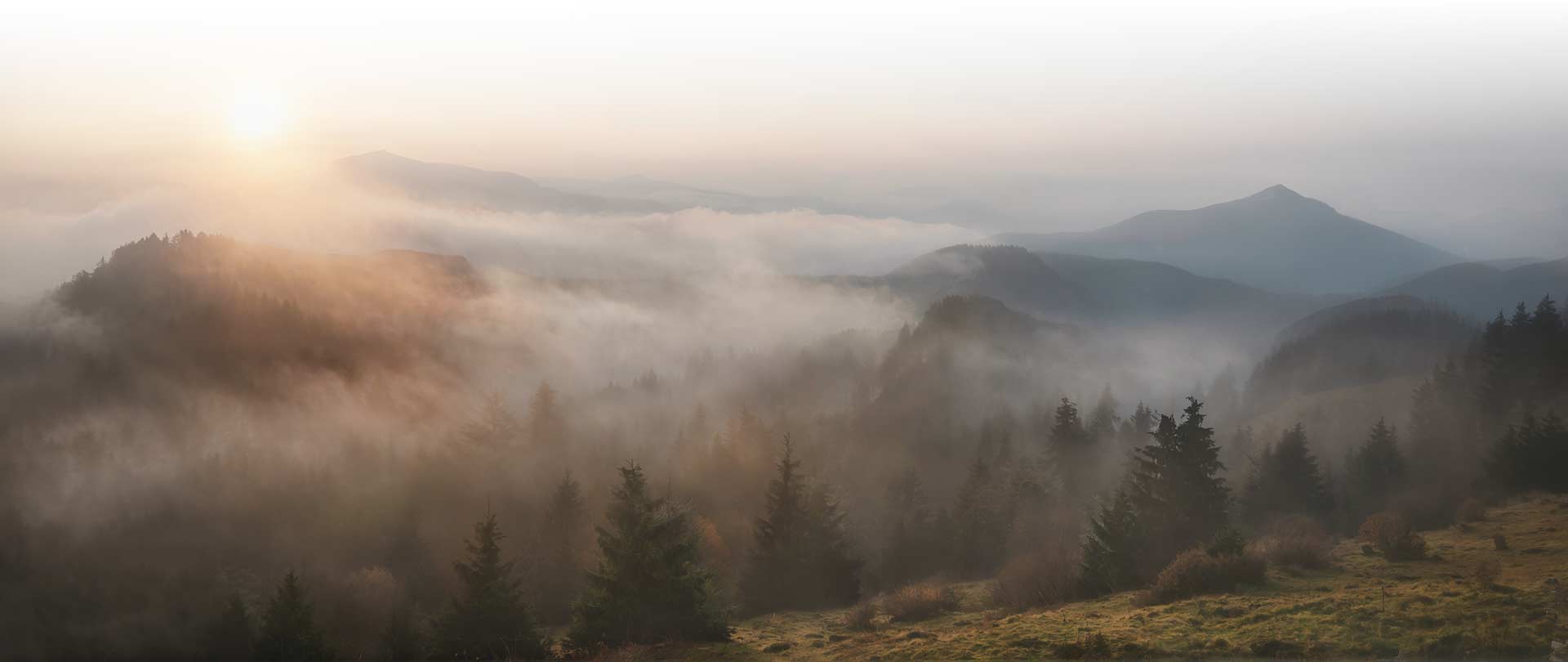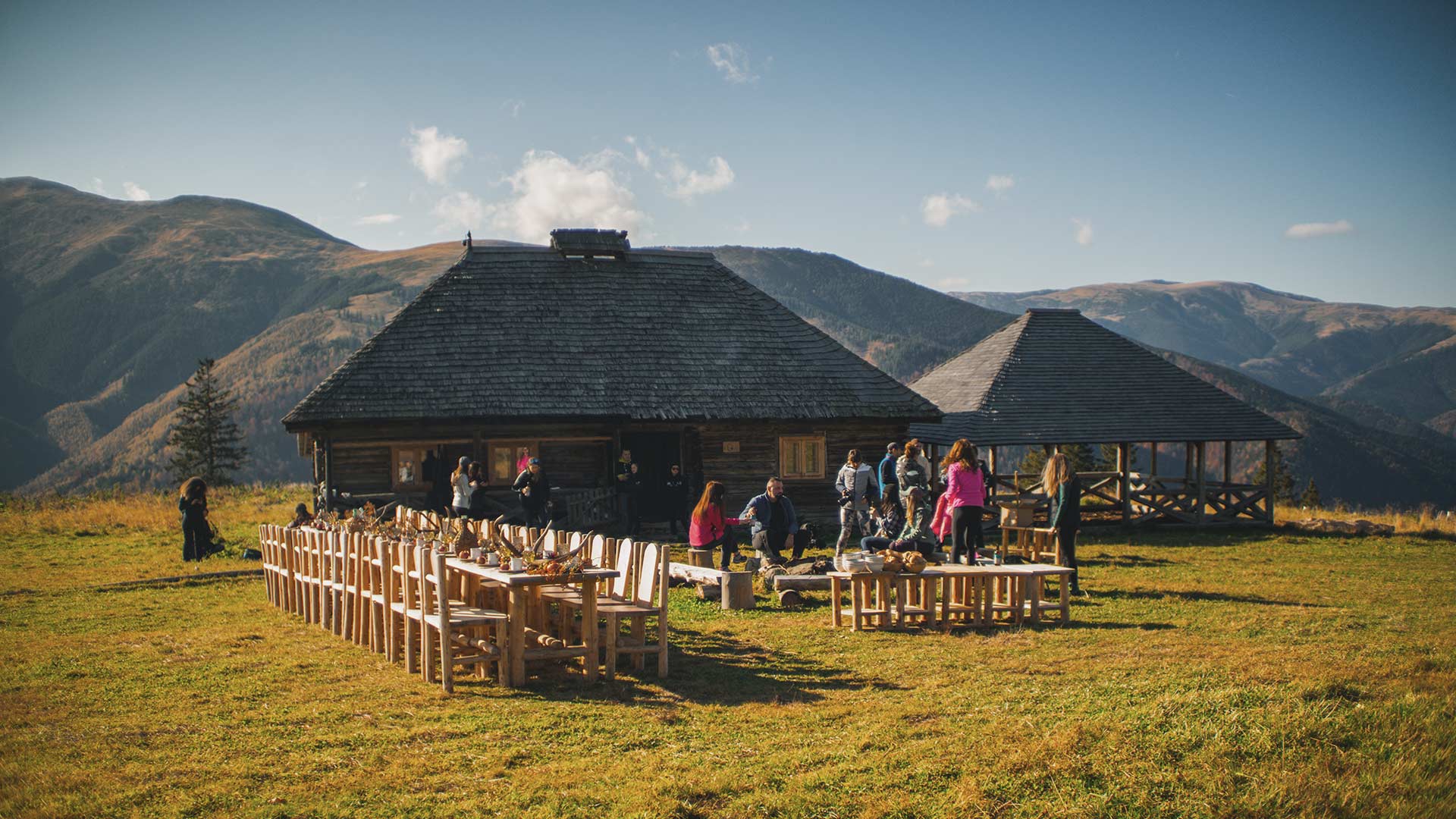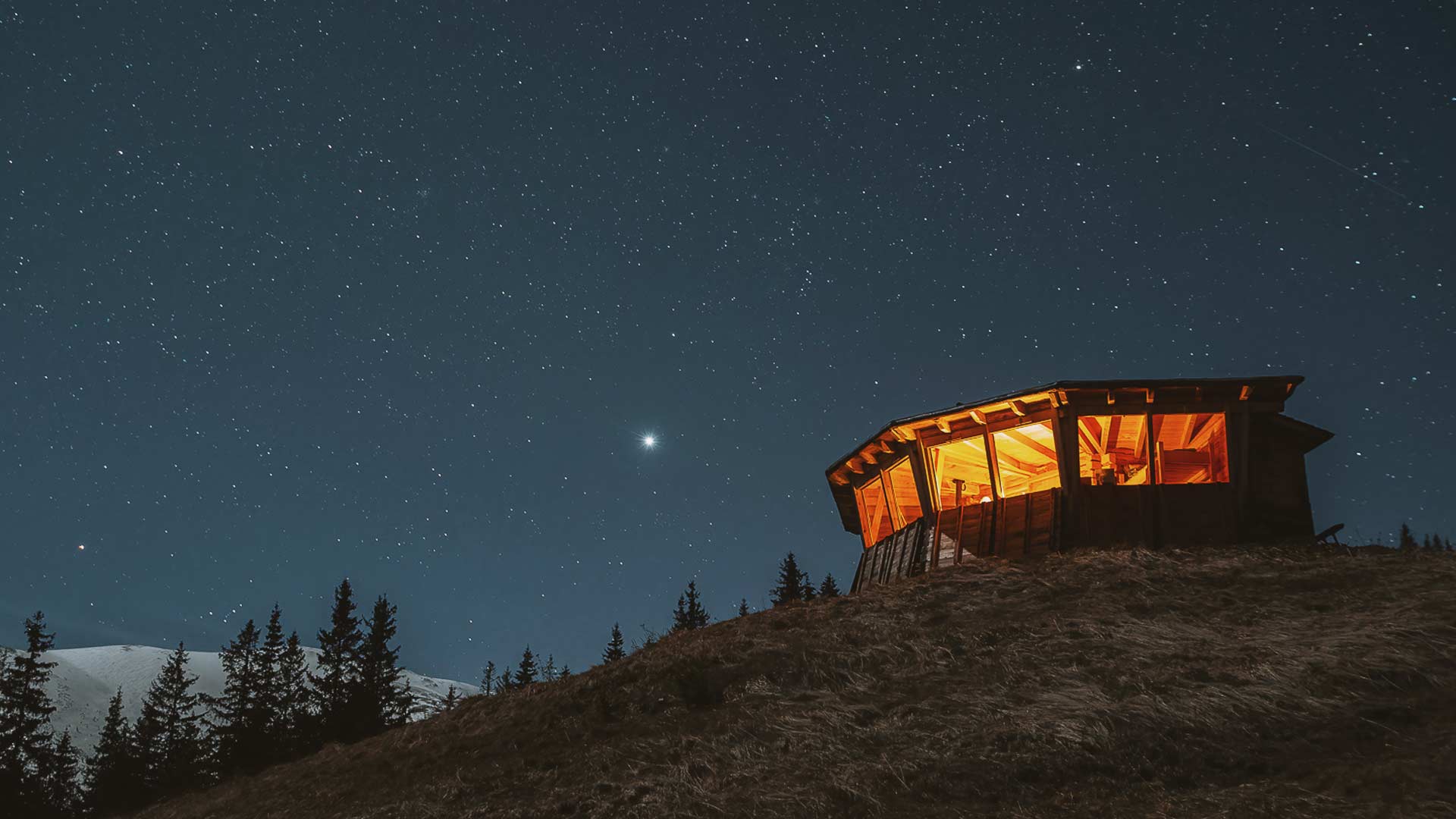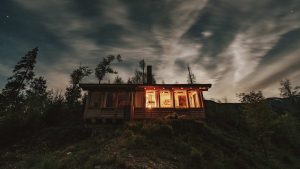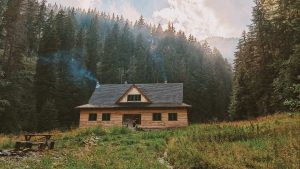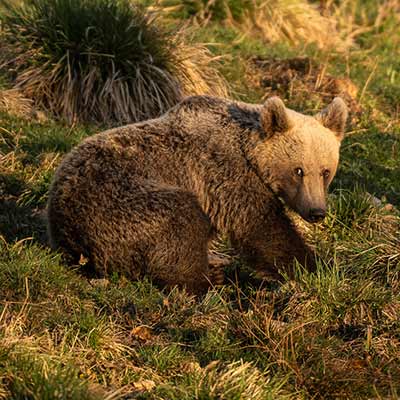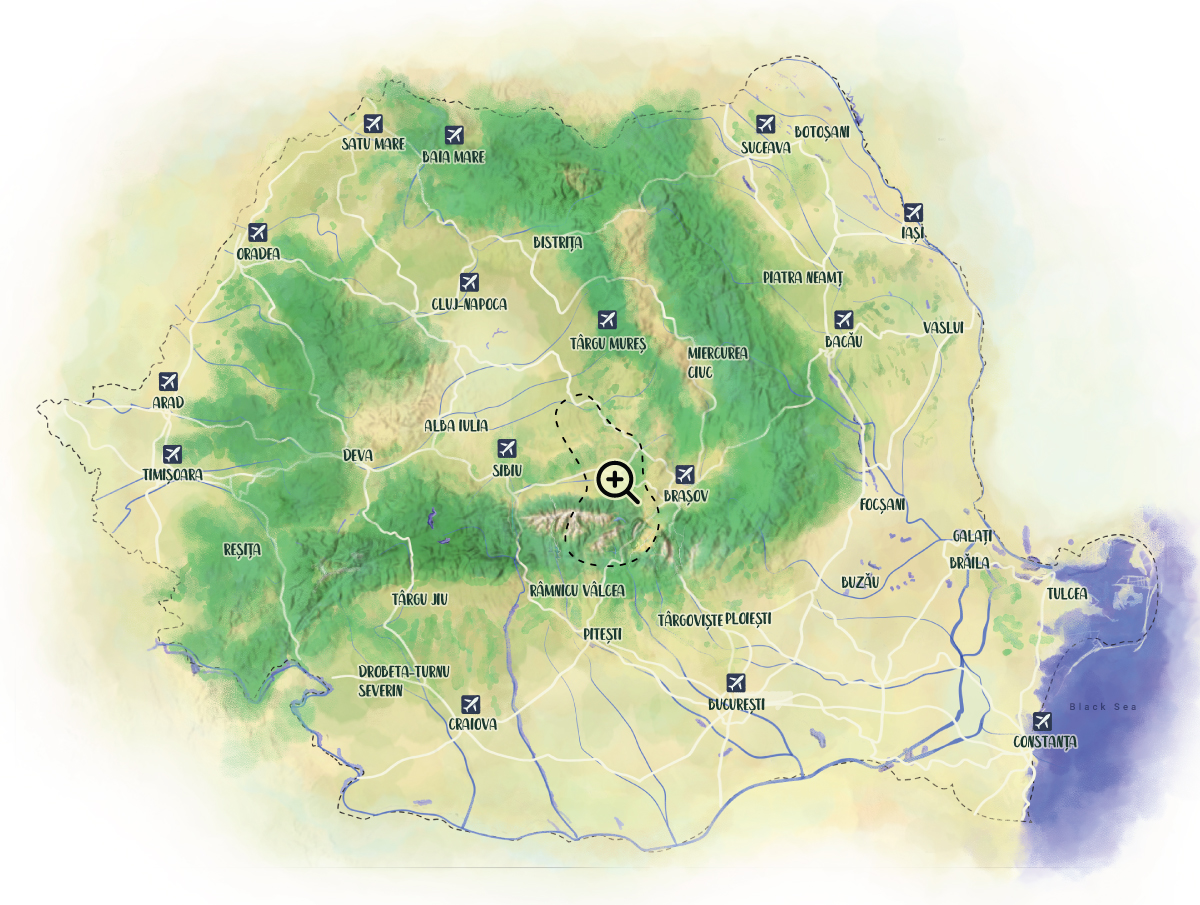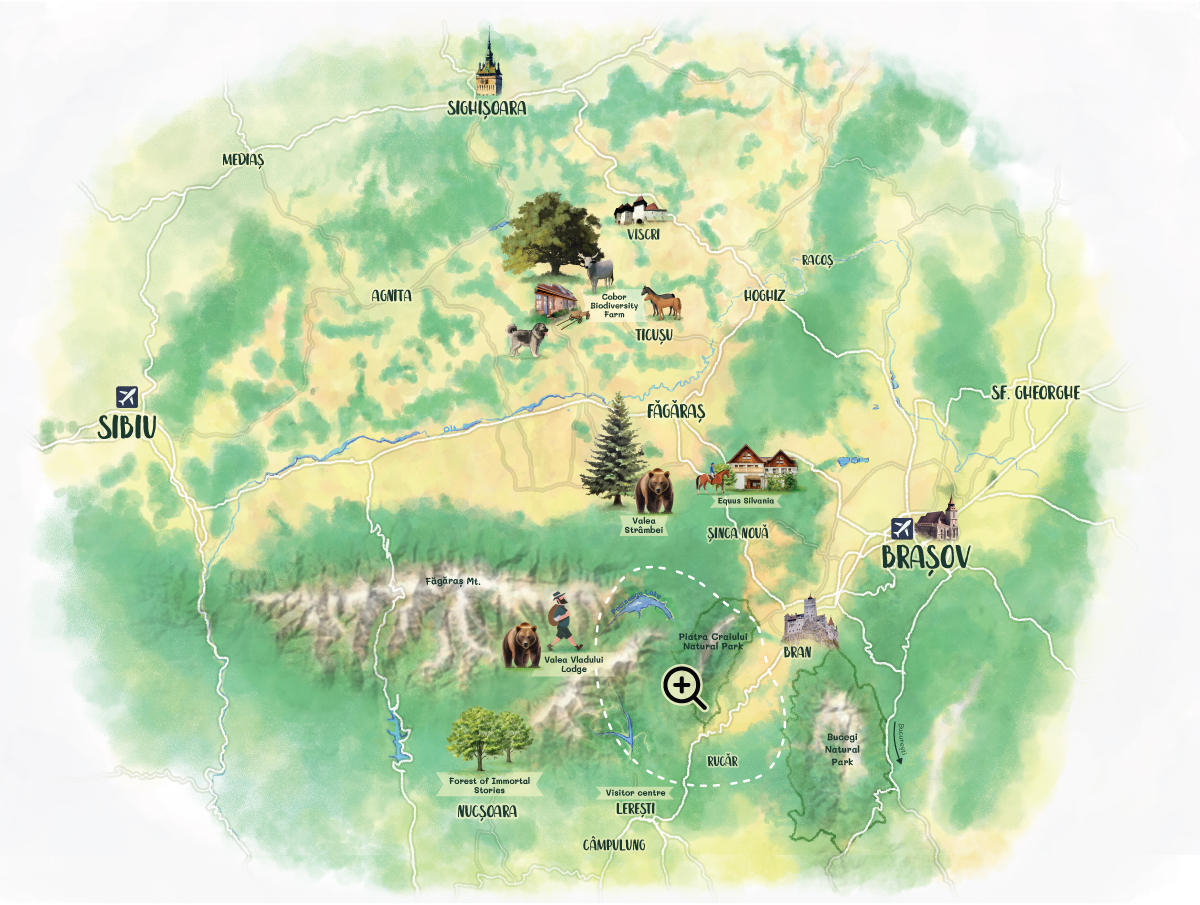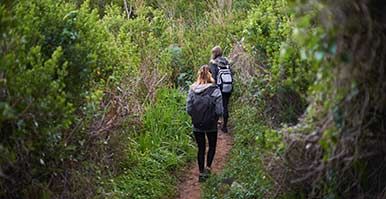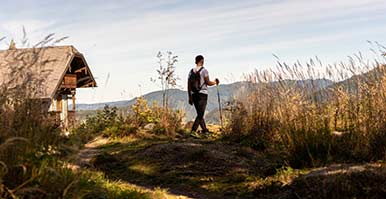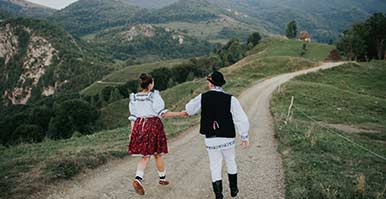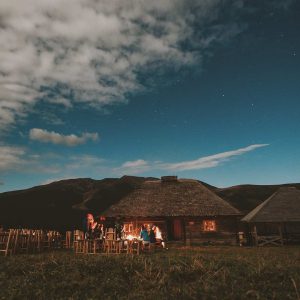© Foundation Conservation Carpathia & OAk Foundation
Carpathian wildlife
Within the Carpathians lies a diverse ecosystem teeming with wildlife, including wolves, Eurasian lynx, brown bears, wild cats, red deer, roe deer, wild boar, bison, capercaillie, marmots, chamois, and numerous other fascinating species.
The region is renowned for sheltering Europe’s most significant population of large carnivores. With estimates suggesting the presence of 10 to 20 times more individuals than in the Alps, the importance of this sanctuary cannot be overstated.
Over 5,000 brown bears (Ursus arctos), 3,000 wolves (Canis lupus), 2,000 lynx (Lynx lynx), and numerous wildcats inhabit the Carpathian region, solidifying its status as a critical haven for these iconic species. In a continent where over 40% of mammal species face extinction threats, preserving carnivore populations in the Carpathians is vital for biodiversity conservation efforts.
In Romania, the Carpathian Mountains dominate a significant portion of the landscape, covering one-third of the country’s territory and encircling the historic region of Transylvania. As such, Transylvania really stands out as the leading European destination for observing wildlife in its natural habitat.
As conservation initiatives and rewilding projects gain momentum in the area, a wave of fresh economic prospects is on the horizon. Coupled with its picturesque landscape, featuring majestic mountains and cultural heritage sites, this area holds the potential to transform into a premier tourism destination, drawing visitors from across the globe.
Some of the wildlife you may hope to encounter during a visit here are:
The brown bear
Within Europe’s last remaining wilderness lies one of the world’s most captivating creatures: the brown bear (Ursus arctos).
Romania’s forests in the Carpathian Mountains host over 5,000 of these majestic animals, constituting the EU’s largest bear population. Easily distinguishable by its broad head, long snout, and small, round ears, the brown bear stands as a remarkable presence. As the largest terrestrial carnivores in Central Europe, they can reach heights of between 1.70 and 2.20 m when standing upright and weigh between 100 and 350 kg, depending on season and age.
These fascinating animals exhibit behaviours that capture the imagination, from standing on two legs to using their ‘fingers’ to pick things up. In the wild, brown bears are omnivores, spending up to 16 hours a day foraging for food, earning them the saying ‘hungry as a bear’. Recognised as a keystone species, their presence indicates a healthy and productive forest environment, abundant with herbs, mushrooms, forest fruits, and wild animals.
The wolf
The wolf (Canis lupus), Europe’s second-largest predator after the bear, weighs between 25 and 60 kg in Romania and typically lives around 6-8 years in the wild.
Revered in stories and myths for its extraordinary intelligence and physical prowess, the wolf holds symbolic significance across various cultures and civilisations.
Wolves are indispensable to ecosystems, maintaining balance by preying on vulnerable individuals and regulating herbivore populations, such as red deer, roe deer, and wild boar. Their presence prevents overgrazing, thus safeguarding forest regeneration. In the absence of wolves, ecosystems can suffer imbalances, leading to biodiversity loss and ecosystem degradation. In many countries, dwindling wolf populations have resulted in unchecked deer populations, which cause significant damage to forest ecosystems through overgrazing.
The bison
The bison (Bison bonasus), Europe’s largest land mammal, sustains itself with a varied herbivorous diet, spending up to 80% of its day grazing.
Revered in stories and myths for its extraordinary intelligence and physical prowess, the wolf holds symbolic significance across various cultures and civilisations.
Although over-hunting led to its extinction in the Romanian Carpathians over 200 years ago, successful reintroduction efforts have been made across Romania. Since 2012, Romania has joined nine other European countries where bison roam freely. Since 2020, Foundation Conservation Carpathia reintroduced over 75 bison into the Făgăraș Mountains. Revered in Romania’s national history and folklore, the bison serves as more than just a symbol; its reintroduction demonstrates how conservation efforts can benefit both the environment and local communities.
The lynx
The Eurasian Lynx (Lynx lynx), with its piercing eyes and agile movements, is an elusive predator that embodies the essence of the untamed wilderness.
Characterised by its tufted ears and a coat of intricate spots, the lynx carries an air of mystery and strength as it roams through the dense forests and rocky terrain of its habitat. These territorial creatures require vast expanses of up to 400 square kilometres to roam, making continuous forested areas essential for their survival – an increasingly challenging condition to uphold.
The lynx holds a prominent position within the list of animals strictly protected by the Habitats Directive of the European Union. As the third largest predator in Europe, trailing only behind the bear and wolf, it competes with them for prey species such as deer or chamois. Renowned for its discretion, the lynx typically avoids contact with humans and refrains from attacking domestic animals. Preferring forest habitats, it cautiously approaches local communities around the Carpathians only under the cloak of night.
The wild boar
In Romania’s expansive landscapes, the wild boar (Sus scrofa) stands as a symbol of vitality and tenacity, traversing diverse terrains with its muscular frame and distinctive tusks.
Embracing a range of habitats, from dense forests to open grasslands, the wild boar showcases remarkable adaptability in its foraging habits. As an omnivorous creature, it plays a crucial part in maintaining ecosystem balance, with its diet encompassing roots, tubers, small mammals, and insects. Beyond sustaining its own population, the wild boar’s presence fosters biodiversity, influencing seed dispersal and soil health.
The capercaillie
The capercaillie (Tetrao urogallus) remains an iconic species in the Carpathian Mountains, cherished for its striking plumage and elaborate mating ritual.
This non-migratory bird favours mature conifer forests with a sparse canopy, making it an indicator of a thriving forest ecosystem. However, its population has dwindled significantly in Central Europe, largely due to habitat loss and fragmentation. Despite its majestic appearance, the capercaillie is not known for its graceful flight, as its heavy body and short, rounded wings hinder its aerial manoeuvrability. Nevertheless, its thunderous take-off serves as a deterrent to potential predators.
Explore the region
